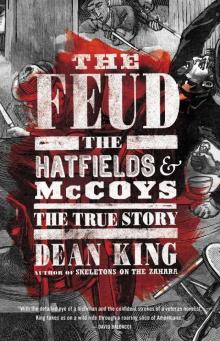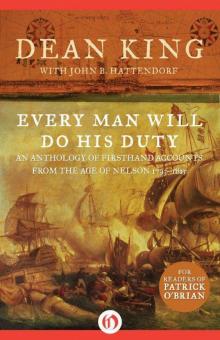A Sea of Words Read online
Page 11
Bastille A prison-fortress built in Paris in the 14th century. The storming of the Bastille on July 14, 1789, touched off the French Revolution.
bastardy order Order made by a magistrate for the support of an illegitimate child by the putative father.
Batavia City and seaport on the northwest coast of Java, now Djakarta. Capitol of the Dutch possessions in the East. Built on marshy grounds and long considered unhealthy.
Batavia salve A topical ointment made of unknown but probably exotic ingredients, associated with the Dutch East Indies.
bate To lower in amount, weight, or estimation; to reduce.
bateleur A small eagle of Africa and Arabia, whose name (bateleur is French for “tumbler”) comes from the birds’ aerial acrobatics, including somersaults, loud wing clapping, and screaming dives. About two feet long, the bateleur has a black crested head, a red face, and long, pointed wings. It hunts for small mammals, reptiles, especially snakes, and carrion.
Bath A well-known city in the west of England, famous for its hot springs. Bath was a center of social life in 18th-century England.
battel Board and lodging expenses, and tuition when applicable.
batten A narrow strip of wood nailed to various parts of the MASTS and SPARS to preserve them from chafing. A similar strip used to fasten down the edges of the tarpaulin fixed over the HATCHWAYS to keep out the water in bad weather. Also, a wooden bar from which hammocks are sometimes slung.
battle-lantern A ship’s lantern made of thick horn to prevent fire and explosion, so called because one was placed at each gun to light up the deck during a night engagement; a fighting-lantern.
baulk A roughly squared beam of timber. Sometimes used specifically to designate Baltic timber, which is roughly dressed before shipment.
Bay of Biscay The Atlantic Ocean immediately west of France and north of Spain, where British blockaders of Napoleon’s ports spent much time. Well known for its ferocious storms and heavy seas.
Beachy Head At 575 feet above sea level, Beachy Head, in East Sussex, is the highest headland on England’s southern coast and a well-known landmark. The French defeated an Anglo-Dutch fleet off Beachy Head in 1690.
beadle A messenger of justice, a warrant officer. An under-BAILIFF
beak or beakhead A small platform at the fore part of the upper deck; the part of a ship forward of the FORECASTLE, fastened to the STEM and supported by the main KNEE. In warships the sailors’ lavatories, or “heads,” were located here.
beam One of the horizontal transverse timbers of a ship that support the deck and hold the vessel together. Also, the breadth of a ship. When preceded by LARBOARD or STARBOARD, it designates the side of a vessel or that direction. A beam wind is a wind hitting the side of a vessel at a right angle to its centerline.
beam-ends The ends of a ship’s BEAMS. “TO be laid on the beam-ends” means to have them touching the water, so that the vessel lies on its side in imminent danger of capsizing.
beamy Of a ship, broad in the BEAM. Wide.
bean-cod A small Portuguese fishing vessel with a sharply curved BOW. See illustration, page 63.
bear For sailors, a word associated with direction and the maneuvering of a vessel. To bear down on something means to head toward it; to bear up is to put the vessel before the wind, which is accomplished by turning the helm to the vessel’s windward—or “up”—side (as the wind in the sail forces the leeward side lower, toward the water); to bear off is to avoid something; to bear away is to change course when CLOSE-HAULED and put the vessel before the wind. Also, a large padded stone used for scrubbing the decks.
beat To sail toward the wind on successive TACKS.
beat to quarters See QUARTERS.
beck To make a sign of recognition, respect, or obeisance; to nod, make a slight bow; to curtsy.
becket A simple contrivance, often a loop of rope with a knot on one end and eye at the other, but also a large hook or wooden bracket, used to hold loose ropes, TACKLE, oars, SPARS, etc., or for holding or securing the TACKs and SHEETS of sails and for similar purposes. The rope handle of a wooden bucket.
Beckford, William (1759-1844) The eccentric English author of the classic Gothic novel Vathek (published in English in 1786), also known for having built Fonthill Abbey, a grand palace of the English Gothic revival.
Bedlam Corruption of the name of St. Mary of Bethlehem Hospital, a London lunatic asylum where the Navy discharged up to 50 men a year for treatment in the early 19th century.
Beechey, Sir William (1753-1839) English portrait painter to Queen Charlotte beginning in 1793. Among his well-known works are Brother and Sister and Cavalry Review in Hyde Park. His son, Frederick William (1796-1856), became a noted naval officer and geographer.
beetle A mallet with a heavy head, usually of wood, used for caulking seams between planks, driving wedges or pegs, ramming down paving stones, or for beating, flattening, or smoothing.
before the mast A descriptive phrase applied to common sailors, who were berthed in the FORECASTLE, fore of the FOREMAST.
before the wind Said of a ship sailing with the wind directly astern.
A ship running before the wind (from Sir William Symonds’s Naval Costumes)
beguin Affection, a crush (French).
behindhand In arrears, insolvent, in debt.
Behn, Aphra (1640-1689) A dramatist, poet, and novelist known as the “Incomparable Astrea,” she is believed to have been the first English female professional writer, particularly known for coarse comedies, such as Forc’d Marriage (1671), The Rover (1677), and The Roundheads (1682). Her personal experiences included growing up in the West Indies, serving as a spy in Antwerp, and imprisonment for debt.
belay To make fast, or secure, a running rope, especially one of the small ones used for working the sails, around a cleat, BELAYING PIN, or KEVEL. Also, to disregard, as in “belay the last word.”
belaying pin The wooden or iron pins around which ropes of the running BUGGING are coiled, also sometimes used as weapons. Normally kept in holes on a rail, called a FIFERAIL or pinrail, around the mast.
Belcher neckerchief A blue neckerchief with large white spots and a dark blue center spot or eye, named after the celebrated pugilist Jim Belcher; sometimes applied to any multicolored handkerchief worn around the neck.
belike Like, likely.
bell See SHIP’S BELLS.
belladonna Literally, beautiful lady, the Italian name for deadly nightshade, Atropa belladonna, long used as a poison. The medical uses of its major active ingredient, atropine, included inducing sleep, analgesia, and dilating the pupil before cataract extraction. It is no longer used for those purposes, but it is prescribed today for others.
Bellerophon, H.M.S. A 74-gun ship launched in 1786 and nicknamed “Billy Ruffian” by sailors. Commanded by Captain John Cooke at TRAFALGAR, Bellerophon fought in the LEE line and suffered 132 dead and wounded, including her captain, who was killed. On July 15, 1815, NAPOLEON gave himself up to Captain Frederick Lewis Maitland of Bellerophon and sailed in her to Torquay and then to PLYMOUTH before transferring to another ship for the voyage to ST. HELENA. Leaving the ship on August 7, Napoleon took off his hat to the officers and men of the Bellerophon. In Patrick O’Brian’s fiction, while Jack Aubrey was serving on the Bellerophon in 1797, he and the ship’s MASTER mapped the port at St. Martin’s, France, which proved fortuitous later during a daring CUTTING OUT mission, as described in The Letter of Marque. See also CHIMAERA.
Bellona, H.M.S. A third rate built in 1760 and broken up in 1814.
bend To make fast. To bend a sail means to make it fast to its proper YARD or STAY.
Benedictine Of or belonging to St. Benedict or the religious order founded by him around the year 529. One of this order of monks, also known from the color of their dress as “black monks.”
benefice A church office that receives the revenue of an endowment. Land granted in feudal tenure, a fief.
Bengal A province of Hindustan th
at includes the delta of the Ganges.
Bengal light A blue light used for signaling and illumination.
ben’t Said of a story that is appropriate, happily invented, even if untrue.
Benthamite A subscriber to the philosophical system of Jeremy Bentham (1748-1832), an eminent English jurist and writer on law and ethics, who taught that the only good is pleasure and that the highest morality is the pursuit of the greatest happiness for the greatest number of people.
Bentinck, Captain John (1737-1775) Inventor of the Bentinck sail, Bentinck BOOM, and Bentinck SHROUD. The first was a triangular COURSE, used as a storm canvas, that was supplanted by the FORE-AND-AFT storm STAYSAIL in the Royal Navy, although it remained in use in the U.S. Navy somewhat longer. The Bentinck boom spread the foot of the FORECOURSE of COLLIER BRIGS, and simplified the operation of going about, since there were no TACKS and SHEETS to worry about. Bentinck shrounds ran from one side of the top to the CHANNELS on the other side, providing extra support to the TOPMAST RIGGING.
Berber Name given by the Arabs to the aboriginal people west and south of Egypt. Any member of the North African stock to which belong the aboriginal races of BARBARY and the Tuwariks of the Sahara.
berth Sufficient space to allow a ship to swing around at the length of her moorings; the place where a ship lies when at anchor or at a wharf. Also, the room or apartment where the officers or ship’s company mess and reside. A sleeping place in a ship.
berth-deck The deck that contains the sailors’ hammocks.
bespoke Ordered, commissioned, arranged for. Spoken of, talked of. Also, engaged to be married.
best bower The port, or “working,” anchor of the two usually identical anchors, carried at the BOWS of a vessel, the other anchor being the SMALL-BOWER.
betel The leaf of the shrubby evergreen plant (Piper betel or Chavica betel), which is wrapped around slivers of areca nut and lime and chewed as a stimulant by the natives of India and neighboring countries.
beth The second letter of the Hebrew alphabet.
beylik or beylic The dominion or jurisdiction of a bey, an Islamic official.
bezant A gold coin first struck at Byzantium or Constantinople and current in England until the 14th century.
bezoar A layered calculus, or hard mass, found in the stomach or intestines of some animals, usually Persian goats, and used as a counter-poison. An expensive panacea at one time, it had been abandoned by most European physicians by about 1700.
bhang The native name of the Indian variety of common hemp, Cannabis sativa, or marijuana, which possesses narcotic and intoxicating properties. In India the leaves and seed capsules are chewed or smoked, eaten in a sweetmeat mixture, and sometimes drunk in an infusion. The name is sometimes extended to an intoxicating substance prepared from the resin of the plant, called hashish by the Arabs.
bib A bracket under the TRESTLETREE of a MAST, resembling a child’s bib with the mast as the “neck.”
Bible A squared piece of stone used to grind the deck with sand in order to clean it. A small HOLYSTONE.
bight The loop of a rope, as distinguished from its ends; the part between the ends.
bilander A two-MASTed merchant vessel distinguished by a trapezoidal MAINSAIL. Bilanders were used in Holland for coast and canal traffic.
bilbo A long iron bar with sliding shackles to confine the ankles of prisoner’s and a lock for fixing one end of the bar to the floor.
bilge The bottom of a ship’s hull, the part on either side of the KEEL that is more horizontal than perpendicular; the lowest internal part of the hull. Also, the foul water that collects in the bilge through leakage or otherwise and becomes noxious.
bill-boards Projections of oak plank secured to the BOW of the ship behind the CATHEADS for the FLUKE of the anchor to rest on. When the anchor has been stowed on the bill-board, it is said to be FISHed, and the TACKLE by which this is done is called the fish-tackle.
billet An appointment, post, or berth.
billet doux Love letter (French).
billet-head A round piece of wood fitted to the BOW or STERN of a whale boat around which the line is secured when the whale is harpooned; a scroll head.
binge To rinse, as in to “binge a cask.”
binnacle A box, found on the deck of a ship near the HELM, that houses the compass.
Bio-Bio River In central Chile, a 238-mile river flowing from the Andes into the Pacific at Concepcion.
Biscayan A native of any part of the shoreline of the BAY OF BISCAY; a Biscayan ship. Also, an inhabitant of the Basque province of Biscaya, or Vizcaya, in Northern Spain.
bisque de homard Lobster bisque (French).
bistoury or bistory A scalpel that is made in any of three forms: straight, curved, or probe-pointed.
bit A sum of money; money.
bitter-end The inboard end of a ship’s anchor CABLE. The last and direst extremity.
bittern Any of several long-legged wading birds having mottled brown plumage and noted for their deep, resonant cry. Specifically, the European species nicknamed “mire-drum” or “bull of the bog” for the boom it utters during breeding season.
bitts A strong pair of oak posts close to the mast for securing items of running RIGGING, such as the foretopsail-SHEET bitts. When at anchor, the CABLE was hitched around the massive RIDING-BITTS, usually two sets of them, one behind the other.
blackamoor A dark-skinned person, especially a Negro.
blackcap Any of several birds with black heads or crowns.
Black Dick See HOWE, Admiral Lord Richard.
black draught A strong cathartic made of cream of tartar (sodium potassium tartrate), coriander, and, in some formulations, other ingredients.
blackguard A rude or unscrupulous person.
blacking A paste or polish applied to a surface to make it black.
blackjack A tankard, often of tar-coated leather, for drinking beer or ale.
black list A list of delinquents to whom extra duty is assigned as a punishment.
black pudding Blood sausage.
black-strake A band of planks painted with TAR and lamp black, immediately above the wales, which were extra layers of planks bolted in certain places to the ship’s side for protection against chafing and impact.
blackstrap An inferior kind of port wine. Also a drink consisting of a mixture of rum and molasses.
Blane, Sir Gilbert (1749-1834) Physician who helped eradicate SCURVY from the Royal Navy by encouraging the consumption of lemon juice and who is credited with greatly improving the Navy’s health and sanitary conditions. Blane collected naval medical statistics and wrote Observations on the Diseases of Seamen (1785).
blanquette de veau Veal stew in a cream sauce (French).
blateroon A babbler.
blauwbok A large antelope found in South Africa and known for its distinctive ash-gray hair over a black hide.
blewit A kind of edible mushroom.
Bligh, William (1754-1817) Admiral Bligh is most famous for surviving three mutinies. The first occurred in 1789 three weeks out of Tahiti aboard H.M.S. Bounty, a former merchant ship loaded with breadfruit trees. Bligh, who was foul-mouthed and unliked by his crew, was set adrift along with 18 others in a 23-foot open boat, which he proceeded to navigate on a 41-day journey, landing safely at Timor. Later, he commanded one of the ships during the mutiny at the NORE in 1797. He became Vice-Admiral of the Blue in 1814, despite being arrested by his soldiers in 1808 when he was Governor of New South Wales, Australia.
bloater A smoked half-dried herring.
block A pulley or combination of pulleys mounted in a wooden or metal case and used to increase the mechanical power of the ropes running through it, especially in the RIGGING of ships and in heavy lifting.
bloody flux Dysentery, characterized by bloody, painful diarrhea caused by any of several microbial organisms.
Blücher, Gebhard Leberecht von (1742-1819) Prussian field marshal who fought against NAPOLEON in the disastrous ca
mpaign of 1806, surrendering with honor near Lübeck. In the dark days that followed, he helped re-create the Prussian opposition to Napoleon. He was a leader in the War of Liberation (1813-14). Although ill and subject to delusions, he won brilliant victories at Wahlstatt and Mockern and played a part in the defeat of the French at Leipzig. Crossing the Rhine, he led his army to Paris. In the WATERLOO campaign of 1815, he was defeated at LIGNY but arrived at a crucial moment in the Battle of Waterloo and helped make it a victory for the allied forces.
bluebottle A fly (Musca vomitoria) with a large bluish body; the meat-fly or blow-fly.
blue devil A baleful demon; despondency, depression of spirits; the apparitions seen in DELIRIUM TREMENS.
blue draught A solution of copper sulfate used as an astringent and tonic, especially for consumption (tuberculosis), although it almost always causes vomiting.
bluejacket A sailor (from the color of his jacket). The term is used especially to distinguish seamen from MARINES.
Blue-Nose A nickname for a native of NOVA SCOTIA. A Canadian, especially Nova Scotian, ship.
blue ointment An ointment for syphilitic chancre and rash made with metallic MERCURY, hog’s lard, and mutton suet.
blue peter A blue flag with a white rectangle in the middle, signifying the letter p in the international code, hoisted to signal that the ship is ready to sail, especially to recall the crew.
blue pill A strong remedy for syphilis made with CORROSIVE SUBLIMATE; see MERCURY.
bluff Of a ship, having little inclination in the BOWS.
blunderbuss A short gun with a large bore, firing many balls or slugs and effective within a limited range without exact aim.
Boadicea (d. A.D. 60) The British queen of the Iceni Celts in East Anglia, Boadicea led a revolt against the Romans, but her army was eventually defeated, and she poisoned herself. She is the subject of poems by Tennyson and Cowper and of the 17th-century tragedy Bonduca by John Fletcher and Francis Beaumont.
Boanerges The name given by Christ to the two sons of Zebedee. Hence, a loud vociferous preacher or orator.

 A Sea of Words
A Sea of Words Skeletons on the Zahara
Skeletons on the Zahara The Feud: The Hatfields and McCoys: The True Story
The Feud: The Hatfields and McCoys: The True Story Every Man Will Do His Duty
Every Man Will Do His Duty 9/11...The Tragic Story of the Day that Changed America: The Terror, The Horror and The Heroes
9/11...The Tragic Story of the Day that Changed America: The Terror, The Horror and The Heroes White Slave Cop
White Slave Cop Skeletons on the Zahara: A True Story of Survival
Skeletons on the Zahara: A True Story of Survival